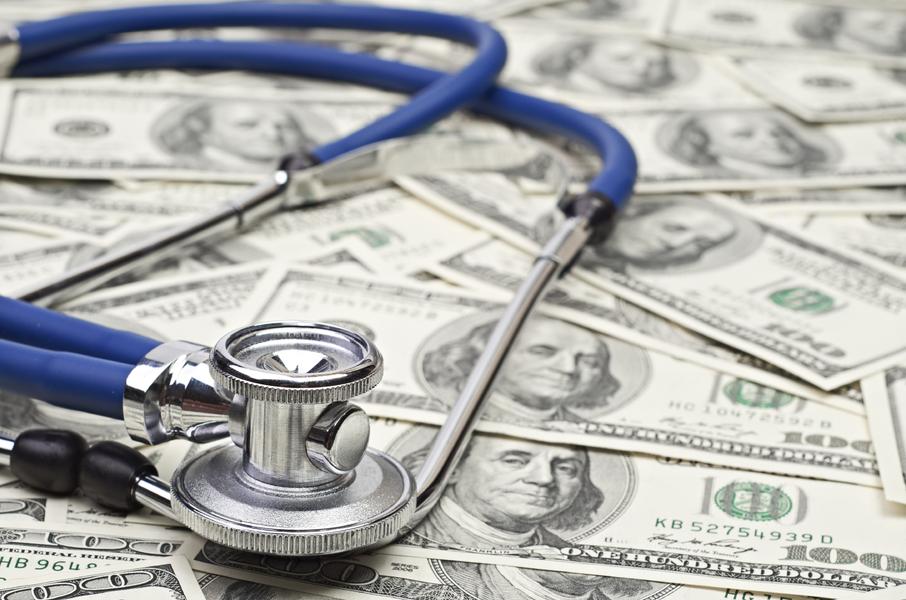Thanks to ObamaCare, you can now see how much money your doctor gets from drugmakers


A free daily email with the biggest news stories of the day – and the best features from TheWeek.com
You are now subscribed
Your newsletter sign-up was successful
Earlier this week, with little fanfare, the Department of Health and Human Services (HHS) released a public database of information about how much money and in-kind benefits doctors have been receiving from pharmaceutical and medical device makers. Only gifts of $10 or more are counted.
The Open Payments database — a requirement of the 2010 Affordable Care Act, or ObamaCare — is incomplete, with data from only the last five months of 2013 so far. But the numbers aren't small: From August to December, 546,000 Doctors, dentists, podiatrists, optometrists, and chiropractors plus 1,360 teaching hospitals received more than $3.48 billion in cash, gifts and in-kind services, stock options, and research grants from drugmakers and device makers. HHS is still verifying 300,000 records it didn't include in the database, so the total amount will rise. The biggest spenders so far are Genetech, Pfizer, and DePuy Synthes.
The idea is that, once the database is fully functional, patients and other interested parties will be able to see a doctor's financial ties to companies, so they can evaluate a doctor's treatments and — more importantly — to discourage conflicts of interest. The American Medical Association opposes the database, arguing that the numbers are out of context and potentially misleading, but this part of ObamaCare has bipartisan support.
The Week
Escape your echo chamber. Get the facts behind the news, plus analysis from multiple perspectives.

Sign up for The Week's Free Newsletters
From our morning news briefing to a weekly Good News Newsletter, get the best of The Week delivered directly to your inbox.
From our morning news briefing to a weekly Good News Newsletter, get the best of The Week delivered directly to your inbox.
After a day or so of digging through the numbers, The New York Times has some of the biggest recipients — the typical doctor received $1,750 in those five months, but at least 130 named doctors pulled in more than $100,000 — and some of the largest potential conflicts of interest. If you're interested in a broader look at where the pharmaceutical/device money comes from and goes to, ProPublica has been tracking the cash for four years.
A free daily email with the biggest news stories of the day – and the best features from TheWeek.com
Peter has worked as a news and culture writer and editor at The Week since the site's launch in 2008. He covers politics, world affairs, religion and cultural currents. His journalism career began as a copy editor at a financial newswire and has included editorial positions at The New York Times Magazine, Facts on File, and Oregon State University.
-
 What to know before filing your own taxes for the first time
What to know before filing your own taxes for the first timethe explainer Tackle this financial milestone with confidence
-
 The biggest box office flops of the 21st century
The biggest box office flops of the 21st centuryin depth Unnecessary remakes and turgid, expensive CGI-fests highlight this list of these most notorious box-office losers
-
 The 10 most infamous abductions in modern history
The 10 most infamous abductions in modern historyin depth The taking of Savannah Guthrie’s mother, Nancy, is the latest in a long string of high-profile kidnappings
-
 Trump HHS slashes advised child vaccinations
Trump HHS slashes advised child vaccinationsSpeed Read In a widely condemned move, the CDC will now recommend that children get vaccinated against 11 communicable diseases, not 17
-
 FDA OKs generic abortion pill, riling the right
FDA OKs generic abortion pill, riling the rightSpeed Read The drug in question is a generic version of mifepristone, used to carry out two-thirds of US abortions
-
 RFK Jr. vaccine panel advises restricting MMRV shot
RFK Jr. vaccine panel advises restricting MMRV shotSpeed Read The committee voted to restrict access to a childhood vaccine against chickenpox
-
 Texas declares end to measles outbreak
Texas declares end to measles outbreakSpeed Read The vaccine-preventable disease is still spreading in neighboring states, Mexico and Canada
-
 RFK Jr. shuts down mRNA vaccine funding at agency
RFK Jr. shuts down mRNA vaccine funding at agencySpeed Read The decision canceled or modified 22 projects, primarily for work on vaccines and therapeutics for respiratory viruses
-
 Measles cases surge to 33-year high
Measles cases surge to 33-year highSpeed Read The infection was declared eliminated from the US in 2000 but has seen a resurgence amid vaccine hesitancy
-
 Kennedy's vaccine panel signals skepticism, change
Kennedy's vaccine panel signals skepticism, changeSpeed Read RFK Jr.'s new vaccine advisory board intends to make changes to the decades-old US immunization system
-
 Kennedy ousts entire CDC vaccine advisory panel
Kennedy ousts entire CDC vaccine advisory panelspeed read Health Secretary RFK Jr. is a longtime anti-vaccine activist who has criticized the panel of experts
